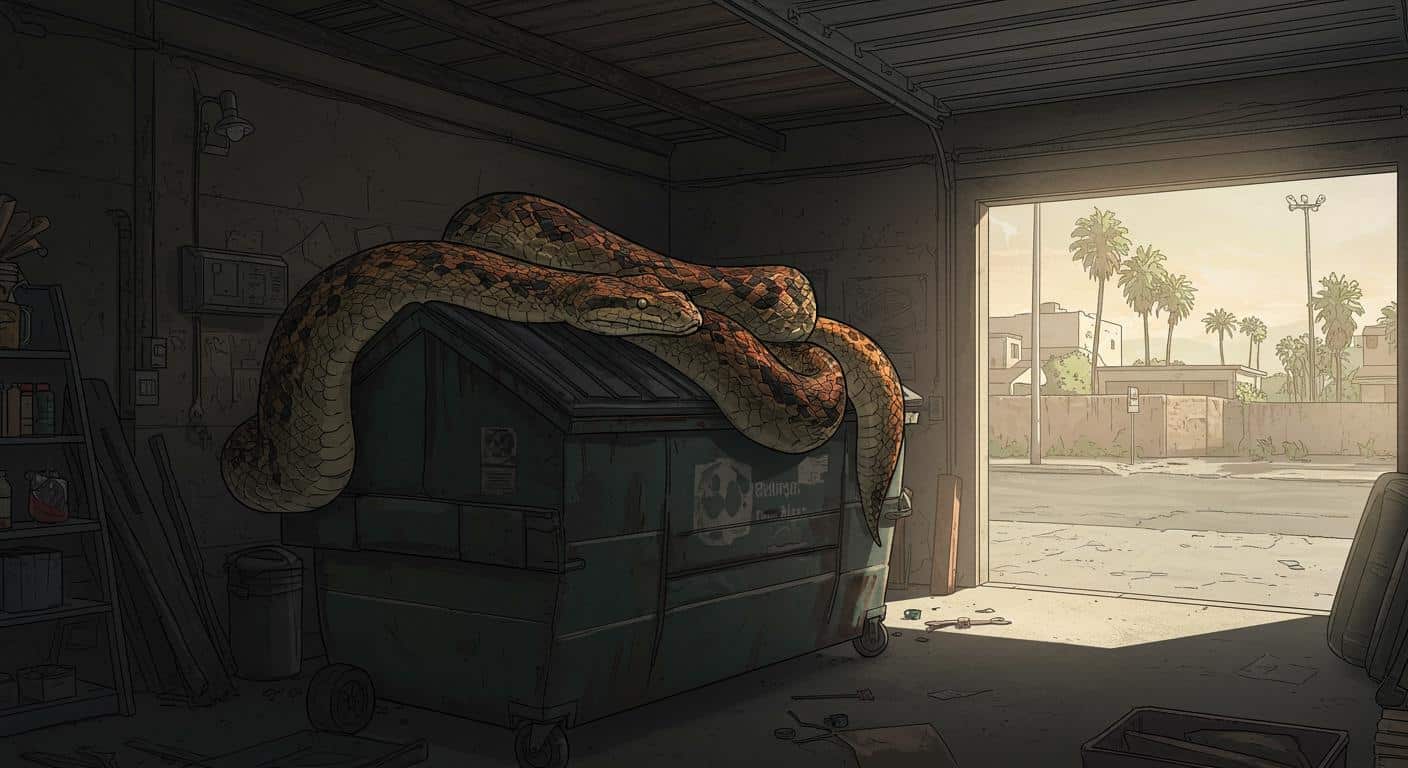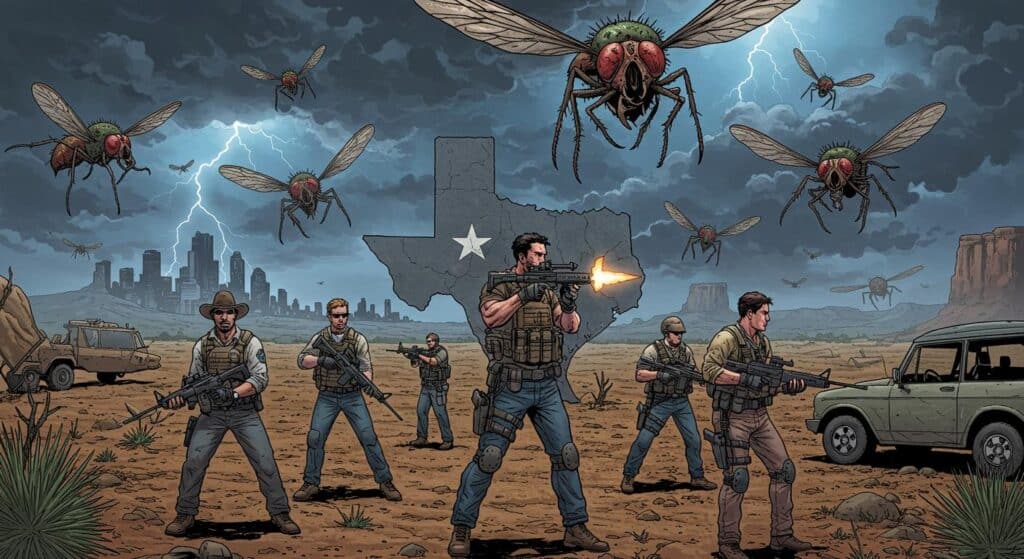Welcome to another day in Los Angeles, the city where the traffic is endless, avocados are forever creeping upward in price, and — as described in UPI’s recent oddities roundup — you just might encounter a 20-foot python, sunning itself on top of your apartment dumpster. In a place famous for its eccentricities, even the local reptiles seem determined to join the cast.
Urban Jungles: Now with Bonus Python
Teresa Sanchez thought she was finishing a routine day when she drove into The Piero Apartments’ parking garage to discover an “unusual” shape stretched across the dumpster. “I couldn’t believe it,” she told local news, adding, “Am I in Florida? What’s going on here?” UPI’s reporting highlights that this initial confusion, tinged with disbelief, may become the hallmark of modern city living: is anything truly off-limits for the endangered art of unexpected discovery?
Sanchez made the rounds of local authorities – animal control proved unreachable, and police demurred, explaining that large snake removal falls outside standard procedure. Eventually, assistance slithered in through Joseph Hart of SoCal Reptile Hunter, summoned by another sharp-eyed resident who was concerned for the snake’s health and suspected abandonment. Hart whisked the python away for a vet exam and rehabilitation — which, considering the snake’s two-decade expanse, likely required an SUV at minimum.
UPI further notes that pythons aren’t native to the United States but are routinely acquired as pets, a phenomenon not limited by region or reason. The report drily references a July incident where a ball python escaped its Chicago-based human, choosing to conceal itself in a Green Line train’s control box. One wonders whether these creatures are more transit-savvy than generally believed.
The Broadening Menagerie: Odd Neighbors Everywhere
Zooming out, the same UPI article offers a veritable parade of oddities, building a picture of modern living that could easily pass for an extraordinarily baffling field guide: recent headlines include a Colorado bear breezing through a home’s door without hesitation, a kitten in Scotland rescued after lodging its head in the unlikely confines of a brick, Indiana’s record-chasing sunflowers, and a bear in Wisconsin finally freed after spending days wandering with a plastic jar stuck on its head. The outlet also mentions escaped bison halting Washington traffic, and a 5-foot water monitor lizard named Goose outwitting Massachusetts authorities for weeks. It’s a roll call that probably makes a 20-foot python in an LA garage seem almost… quaint.
All these stories, the product of an impressive cross-section of UPI’s Odd News coverage, suggest our line between “urban” and “wilderness” is as defunct as a discarded zoo map. At what point do you stop being surprised by your city’s new wildlife? Is there a secret competition among animals to outdo one another for headline dominance? My own research background reminds me this isn’t exactly a new phenomenon; Londoners in the 19th century occasionally “re-homed” overgrown menageries by releasing them onto the streets. Perhaps today’s abandoned pythons are simply following a long, haphazard tradition — the accidental inheritors of our collective inability to finish what we started.
When the Exotic Becomes the Everyday
The python’s predicament raises uncomfortable — and recurring — questions about exotic pet ownership: what becomes of these creatures when the novelty dims or the cages prove too small? A public dumpster is, after all, an ignominious stage for an animal that once commanded awe. Is it guilt, desperation, or just a collective shrug that lands a snake on the trash heap, banking on a stranger’s intervention?
The report describes the python as ill, its abandonment combining a certain clandestine shame with the hope that, perhaps, someone else might pick up the thread. One wonders how often this kind of responsibility gets quietly transferred or outright ignored in modern metropolitan life. Is this tendency unique to cities — or only more visible there?
Cataloguing the Absurd
As bizarre as it sounds, the sight of a giant python napping on a dumpster may soon join the extensive annals of minor urban legends, tucked neatly between the tales of world-record sunflowers and disco-dancing rodents. When wildlife and domestic curiosity collides with public life, the results inevitably veer toward the surreal. Perhaps there are apartment complexes out there quietly boasting unofficial mascots — bison in the bike rack, lizards behind the recycling bins, and now, pythons atop the recycling.
Maybe the better question isn’t “what’s the weirdest thing you’ve found coming home?” but rather, “how many wild things have gone unnoticed in the shuffle of a modern Tuesday?” With each peculiar addition to the daily urban archives, the definition of “normal” stretches ever further, testing the cataloguer’s ability to keep a straight face.
Is a python on a dumpster all that out of place, or is it just our latest addition to the evolving, unintentional museum of city life? And if so, who’s curating this collection — and are they taking suggestions?







